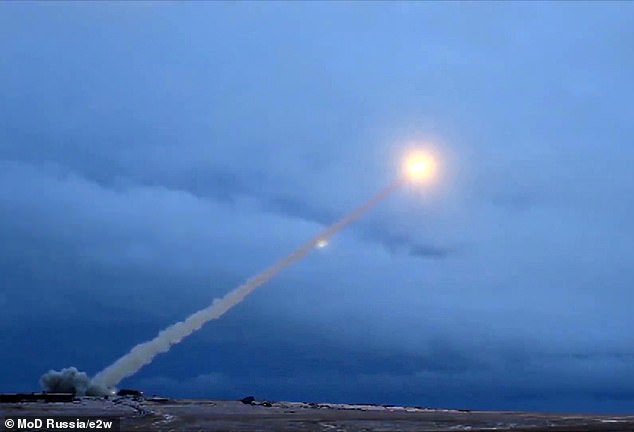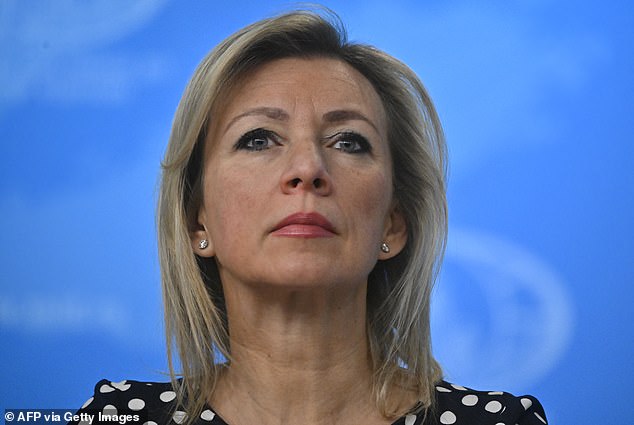US will keep nuclear weapons in Britain for the first time in 15 YEARS as fears of a European war edge ever closer
- Pentagon documents show US plans to deploy nuclear warheads three times as powerful as the Hiroshima bomb on British soil
The United States plans to station nuclear weapons in Britain for the first time in fifteen years to counter Russia’s threats, it emerged last night.
Pentagon documents show that the US plans to deploy nuclear warheads three times as powerful as the Hiroshima bomb on British soil. Moscow said it would regard the move as an “escalation” that would be met with “countermeasures.”
Procurement contracts for a new facility at RAF Lakenheath in Suffolk reveal that the US plans to house B61-12 gravity bombs at the site ‘soon’.
US nuclear warheads were last stationed in Britain in 2008, when the Cold War threat from Russia was judged to have waned.
The plans are part of a NATO-wide program aimed at developing and upgrading nuclear sites in response to rising tensions with the Kremlin.
Pentagon documents show US plans to deploy nuclear warheads three times as powerful as the Hiroshima bomb on British soil

Moscow said it would regard the move as an “escalation” that would be met with “countermeasures.”

Russian Foreign Ministry spokesperson Maria Zakharova in Moscow on January 18, 2024
The unredacted documents from the US Department of Defense procurement database show that the Pentagon has ordered equipment, including ballistic shields, for Lakenheath, and that construction of a housing facility for US soldiers at the base will begin in June.
During the Cold War, nuclear weapons were stationed at RAF Lakenheath. Activists held protests outside the site in 2022 when it was reported that US nuclear warheads could be stationed there.
Russian Foreign Ministry spokesperson Maria Zakharova said: “In the context of the transition of the United States and NATO to an openly confrontational course of inflicting a ‘strategic defeat’ on Russia, this practice and the development allows us to take countervailing countermeasures to reliably protect the security interests of our country and its allies.’
The Pentagon emphasized that the documents “are not predictive of, nor intended to reveal, specific posture or basic details.”
A Ministry of Defense spokesperson said: ‘It remains a long-standing policy of Britain and NATO to neither confirm nor deny the presence of nuclear weapons in a particular location.’
